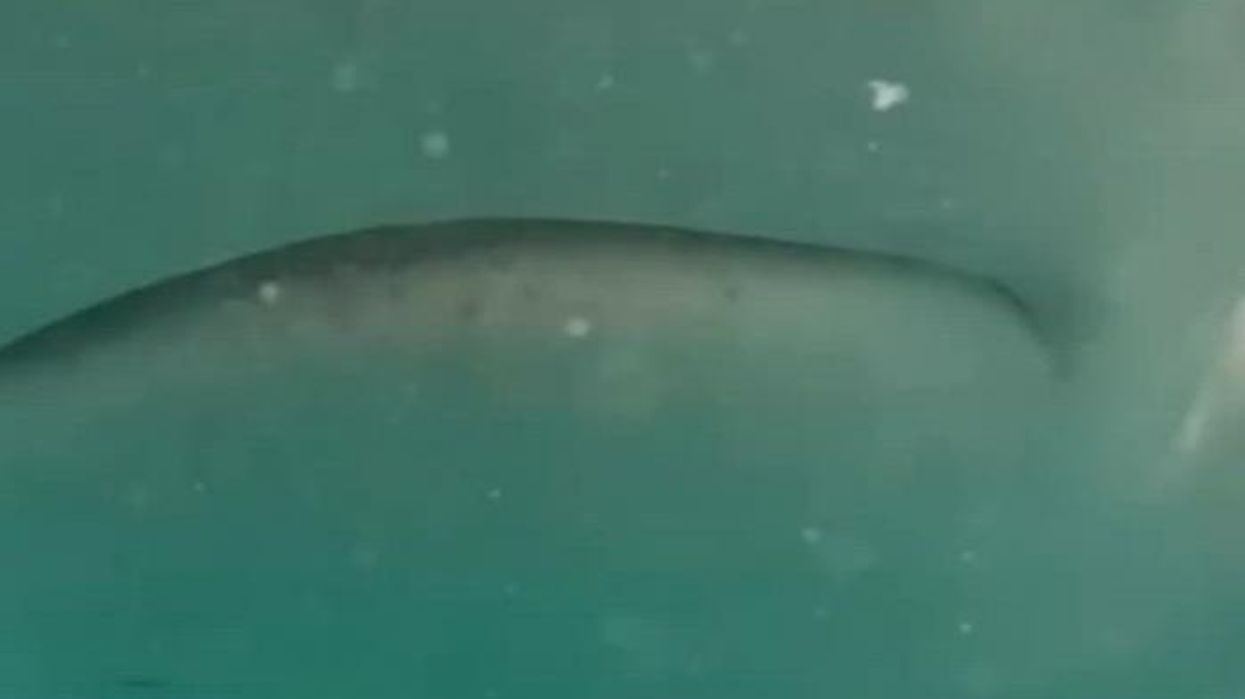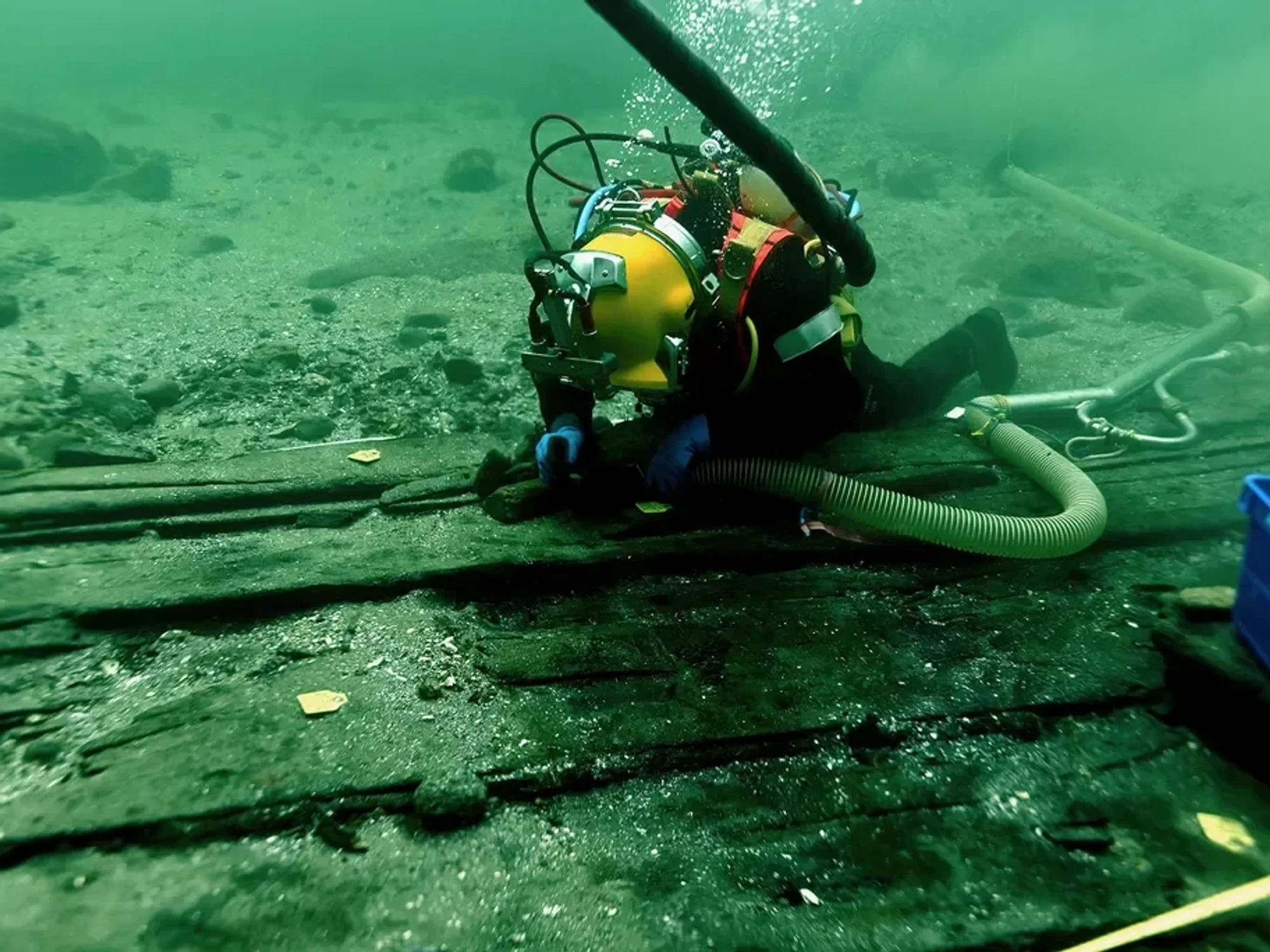Cameron Walker reflects on being circled by sharks - watch the incredible video here
GB News Royal Correspondent Cameron Walker came face to face with a shark while in South Africa this month
Don't Miss
Most Read
Nothing quite prepares you for the moment a killer shark emerges from the murky water, charging towards you with a sadistic look in its eyes.
I backed away hastily, forgetting momentarily I was actually in a cage.
The three-metre-long copper shark, a species responsible for a number of attacks on humans, forcefully poked its large nose inside the cage, close enough that I could reach out and touch it - I didn't dare.
The shark, of course, very quickly lost interest in me and casually swam around hoovering up the chum that had been dropped in the water.
Believe it or not, I deliberately put myself in this situation.
You see, it has been an ambition of mine to swim with large sharks; I'd had a fascination with marine life from a young age, and spent my childhood summers on the west coast of Scotland.

Cameron Walker came face to face with a killer shark while in South Africa
|CAMERON WALKER
Unlike South Africa, the most dangerous creature patrolling the sea lochs of Scotland (in my opinion) is the Lion's main jellyfish - a painful sting, but unlikely to bite your leg off.
Having travelled to Cape Town to cover The Prince of Wales' Earthshot Prize and United for Wildlife summit, I couldn't resist the opportunity to jump into the South Atlantic, known for harbouring great whites and copper sharks.
I boarded the small vessel, donned a borrowed bright orange Helly Hansen jacket (fashion knows no bounds), and we cruised out into the open water.
I say "cruised", the sea was actually quite choppy, making a couple of my fellow cage divers sea sick.
For me, it was a thrilling rollercoaster - bumping up and down the waves, with sea spray whipping through my hair.
Having arrived at the dive site about 15 minutes out from the harbour, the small cage was dropped into the water and tied tightly to the side of the boat.
This is when reality set in; my overriding thought was: "what if the cage detaches from the hull?"
I pulled on my wetsuit and the skipper opened the tiny hatch at the top of the cage.
Six of us climbed through the hatch, and plunged into the freezing water - despite the warm climate, the ocean had other ideas.
We got over the shock of the cold water relatively quickly, and shuffled along the narrow cage to allow fellow divers inside.
The hatch was then shut, leaving us holding onto a flimsy bar - floating and trapped in the deep water.
The boat's crew then poured chum (fish guts and offcuts) into the water - some of which wafted into the cage and stuck to our wetsuits.
It appeared that we had become the bait.
A number of copper sharks circled the boat, swam underneath our feet, and (as previously described) charged straight towards the cage.
Unsurprisingly, the adrenaline buzz was on another level, but I was also eager to learn more about the conservation work to protect the vulnerable species.
When I booked the shark cage diving experience, I expected to see a number of great white sharks.
To my surprise, however, I discovered that great whites are actually critically endangered in South Africa; there are only a few hundred individuals remaining.
The last sighting of the great white by the White Shark Diving Company was on 14 June 2024 - almost five months ago.
"Overfishing", a marine biologist on the board told me, is one of the main causes.
The great whites' food source is dramatically depleted, and so they are forced to swim elsewhere to seek out prey.
I had learned about overfishing when covering Prince William's public engagements last week.
MORE FROM GBN MEMBERSHIP:

Cameron Walker has been reporting on Prince William who spent time with Earthshot Prize 2023 finalist Abalobi
|GB NEWS
The Prince spend time with Earthshot Prize 2023 finalist Abalobi, which aims to protect small-scale fishing communities and nurture their ocean stewardship, while arming their customers about where their seafood comes from.
Small-scale fishers are supported to "demonstrate transparently" that they are fishing sustainably and helping to restore fish populations.
In return, they receive a fair price for their catch.
Fortunately, I emerged from the cage in on piece, and the money raised from sales goes towards vital shark conservation research.
Reporting on conservation and vulnerable species is one thing, experiencing it for yourself is entirely another.











